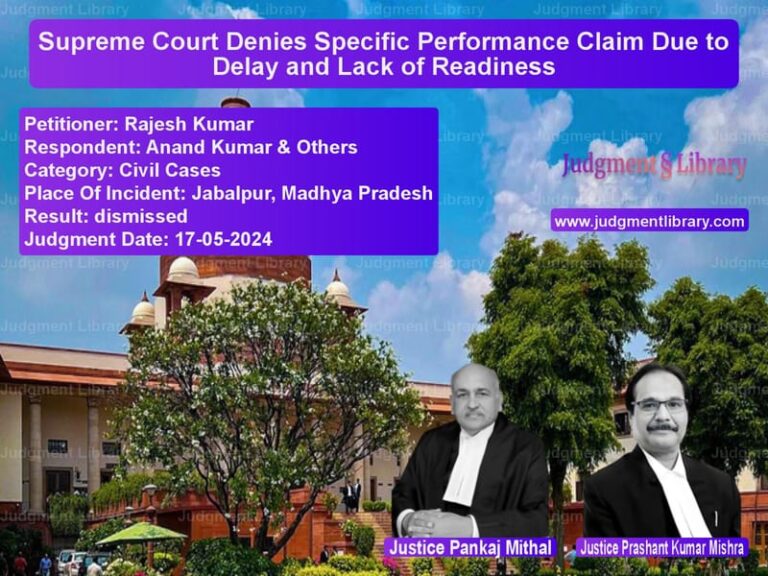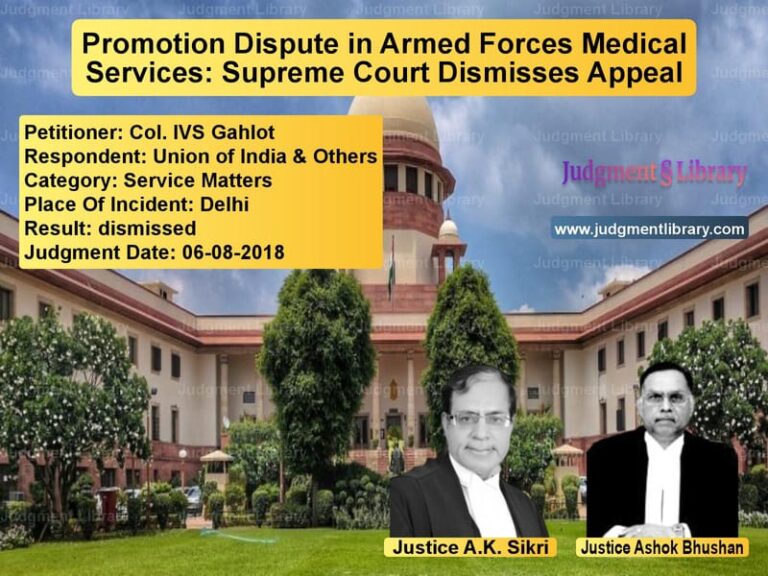Supreme Court Grants Bail in Bhima Koregaon Case: Key Takeaways
The case of Vernon v. The State of Maharashtra & Anr. has been a highly debated legal matter concerning the Bhima Koregaon violence and its alleged links to extremist organizations. The Supreme Court of India granted bail to the appellants, Vernon and Arun Ferreira, who were charged under various sections of the Unlawful Activities (Prevention) Act, 1967 (UAPA) and the Indian Penal Code (IPC). The judgment underscores the importance of personal liberty, presumption of innocence, and the principle that bail cannot be denied indefinitely based on mere allegations.
Background of the Case
The case originates from an incident that took place on December 31, 2017, at the Elgar Parishad event in Pune, Maharashtra. The event allegedly incited violence the next day near the Bhima Koregaon war memorial. The First Information Report (FIR) filed on January 8, 2018, accused several individuals of being involved in acts that created enmity between caste groups, leading to violence.
Initially, the investigation was carried out by the Pune police, but on January 24, 2020, the National Investigation Agency (NIA) took over the case. The charges included:
- Sections 121, 121A, 124A, 153A, 505(1)(b), 117, 120B read with Section 34 of IPC
- Sections 13, 16, 17, 18, 18B, 20, 38, 39, and 40 of UAPA
Key Legal Issues
- Whether the accused were directly involved in terrorist acts or conspiracies under the UAPA.
- Whether the materials presented by the NIA provided sufficient grounds to deny bail.
- Whether continued detention violated the constitutional right to personal liberty under Article 21 of the Indian Constitution.
Petitioner’s Arguments
The defense, represented by senior counsel, argued the following:
- The appellants were writers, human rights activists, and advocates, with no direct involvement in any terrorist activities.
- The charges were based on electronic evidence allegedly recovered from other accused persons, making them unreliable.
- None of the accused were named in the original FIR, and their names appeared only after subsequent investigations.
- Documents and witness statements presented by the prosecution were weak and lacked direct evidence of terrorist activities.
- The accused had already spent nearly five years in custody without trial, violating their fundamental right to a fair trial.
Respondent’s Arguments
The NIA, representing the prosecution, contended:
- The accused were active members of the banned Communist Party of India (Maoist) and were involved in recruiting individuals for violent activities.
- Various letters, documents, and witness testimonies indicated their association with extremist activities.
- Materials such as pamphlets, books, and electronic records linked them to a larger conspiracy against the state.
- The seriousness of the charges justified their continued detention under UAPA provisions.
Supreme Court’s Observations
The Supreme Court carefully analyzed the prosecution’s evidence and made the following key observations:
“The materials relied upon by the prosecution are primarily third-party references, and no direct involvement of the accused in terrorist acts has been established.”
“The principle that bail should not be denied merely because of the gravity of the offense applies in this case, especially when the prosecution’s evidence is largely circumstantial.”
The Court also referred to previous judgments emphasizing that:
- “Mere membership of a banned organization does not constitute an offense unless accompanied by some overt act.”
- “The nature of evidence presented does not meet the threshold required under UAPA for denying bail indefinitely.”
Final Judgment
The Supreme Court granted bail to the accused with stringent conditions:
- The appellants must reside in Maharashtra and cannot leave the state without court permission.
- They must surrender their passports and use only one mobile phone, which must remain active and accessible to authorities.
- They must report to the police station weekly and ensure their mobile locations remain active.
- They are prohibited from engaging in any activities that could interfere with the investigation.
Implications of the Judgment
The Supreme Court’s ruling in this case sets a significant precedent for cases under UAPA:
- It reiterates that bail cannot be denied indefinitely based on vague and circumstantial evidence.
- It emphasizes that fundamental rights, including personal liberty, cannot be suspended indefinitely without a fair trial.
- It highlights the need for careful judicial scrutiny of cases involving UAPA to prevent its misuse.
Conclusion
The Supreme Court’s judgment in Vernon v. The State of Maharashtra & Anr. is a landmark ruling that reinforces the principles of personal liberty and the presumption of innocence. While recognizing the seriousness of the allegations, the Court ensured that due process and constitutional protections were upheld. This ruling is likely to influence future cases involving UAPA, particularly in ensuring that detentions under the Act do not become indefinite without substantive evidence.
Petitioner Name: Vernon.Respondent Name: The State of Maharashtra & Anr..Judgment By: Justice Aniruddha Bose, Justice Sudhanshu Dhulia.Place Of Incident: Maharashtra.Judgment Date: 27-07-2023.
Don’t miss out on the full details! Download the complete judgment in PDF format below and gain valuable insights instantly!
Download Judgment: vernon-vs-the-state-of-maharas-supreme-court-of-india-judgment-dated-27-07-2023.pdf
Directly Download Judgment: Directly download this Judgment
See all petitions in Bail and Anticipatory Bail
See all petitions in Terrorist Activities
See all petitions in Judgment by Aniruddha Bose
See all petitions in Judgment by Sudhanshu Dhulia
See all petitions in allowed
See all petitions in supreme court of India judgments July 2023
See all petitions in 2023 judgments
See all posts in Criminal Cases Category
See all allowed petitions in Criminal Cases Category
See all Dismissed petitions in Criminal Cases Category
See all partially allowed petitions in Criminal Cases Category







